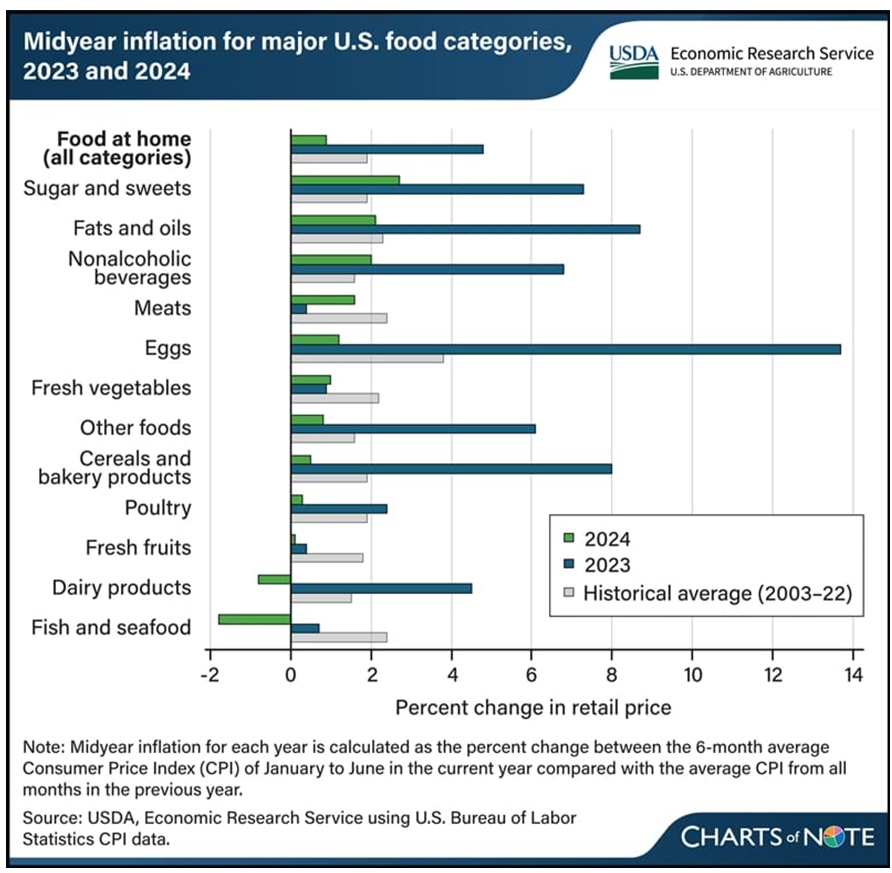By: Marjorie DePuy, Senior Director, Supply Chain and Sustainability, FMI

Despite commodity fluctuations and trying transportation dynamics through the supply chain, the food industry has done a good job of keeping consumer prices as low as possible. At the same time, with the many ways consumers are engaging in this new marketplace, the economics at play in today’s supply chains are not workable in the long run. With that in mind, how do we change the way we meet omnichannel demand? How do we reset trading partner collaboration to eliminate friction?
These were key questions posed to the audience during the recent FMI Supply Chain Forum. Opening with a call to action, Mark Baum, chief collaboration officer at FMI, asked Thom Blischok, chairman and CEO of The Dialogic Group, for his overarching take on the state of play in the supply chain. Here’s an excerpt of the discussion:
“We should be thinking in terms of omnichannel fulfillment, not supply chain,” Blischok shared. “The average retailer has two forecasting systems, manufacturers have eight. Where are we building inadequacies into the system because we can’t forecast well?”
Baum replied, “There are strong examples of reimagined supply networks, new technology and new automation systems changing the way orders are fulfilled, many of which are on display here at this event. Is that not enough?”
Blischok shared, “Current supply chains are in various states of improvement – but not at the pace of change needed to accommodate the integration of physical and digital retailing. Supply itself is challenged. Omnichannel forecasting and replenishment is in its infancy; costs are rising across the board. Most importantly, the new norm post COVID-19 will have an encompassing approach to the ‘phygital’ -- physical + digital –retail landscape.”
Baum asked, “What kind of collaboration do we need to overcome some of the barriers we face, to avoid falling into bad habits or rely on the way it used to be?”
Blischok replied, “Winners will win because they collaborate, not because they isolate. We need to ask ourselves how we take 30 to35% of the cost out of the system. We need to change the way we meet omnichannel demand. Nothing is more important than forecasting the ‘phygital shelf.’”
Want to hear more? This full discussion as well as a goldmine of brief and practical 30- minute education segments are now available on demand for a $99 all-access pass. Recordings include:
- The release of the FMI 2020 Supply Chain Benchmark.
- A behind the curtain spotlight from Ahold Delhaize USA on their reimagined supply chain.
- A review of microfulfillment and automation solutions.
- And much, much more.
Sessions are available on-demand until May 7.


 Industry Topics address your specific area of expertise with resources, reports, events and more.
Industry Topics address your specific area of expertise with resources, reports, events and more.
 Our Research covers consumer behavior and retail operation benchmarks so you can make informed business decisions.
Our Research covers consumer behavior and retail operation benchmarks so you can make informed business decisions.
 Events and Education including online and in-person help you advance your food retail career.
Events and Education including online and in-person help you advance your food retail career.
 Food Safety training, resources and guidance that help you create a company food safety culture.
Food Safety training, resources and guidance that help you create a company food safety culture.
 Government Affairs work — federal and state — on the latest food industry policy, regulatory and legislative issues.
Government Affairs work — federal and state — on the latest food industry policy, regulatory and legislative issues.
 Get Involved. From industry awards to newsletters and committees, these resources help you take advantage of your membership.
Get Involved. From industry awards to newsletters and committees, these resources help you take advantage of your membership.
 Best practices, guidance documents, infographics, signage and more for the food industry on the COVID-19 pandemic.
Best practices, guidance documents, infographics, signage and more for the food industry on the COVID-19 pandemic.
